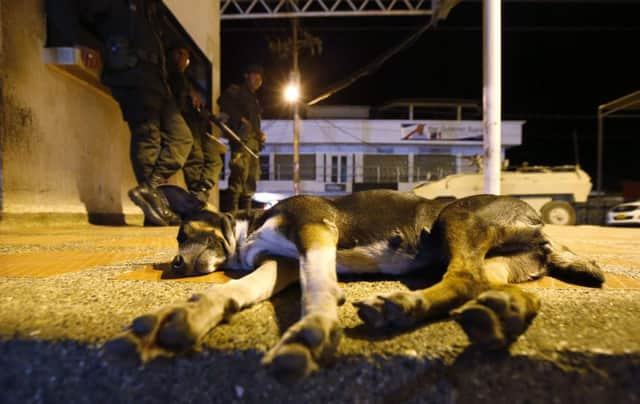Chaos as Venezuelan closes major Columbian border


President Nicolas Maduro ordered the main crossing in Venezuela’s biggest state closed on Monday night as part of a two week-old anti-smuggling offensive.
The offensive has shelters and human rights groups in Colombia struggling to absorb thousands of migrants who have fled their Venezuelan homes.
Advertisement
Hide AdAdvertisement
Hide AdThe crackdown had targeted Tachira state across the border from Cucuta, a Boston-sized city in Colombia that has long relied on smuggled gas, food and other goods purchased in Venezuela at bargain-basement subsidised prices.
In moving his focus north to Zulia state, Mr Maduro is encroaching on a more vital economic hub around the oil metropolis of Maracaibo, Venezuela’s second-largest city.
A long line of cars waited for a chance to pass a fenced-up border checkpoint on Tuesday night as bored soldiers watched a soccer game.
Venezuelan bus driver Hector Medina had spent the whole sweltering day stranded on the Colombian side of the border, while his passengers had tried their luck walking across.
“You can’t just out of nowhere close the border and leave everyone locked out like this,” he said.
In the space of two weeks, Mr Maduro has closed six crossings and deported about 1,500 Colombians without legal status, blaming the migrants for a surge in crime and contraband along Venezuela’s western edge.
Nearly 20,000 more Colombians, some of whom have lived in Venezuela for years, have returned voluntarily, fearing reprisals as reports spread about security forces uprooting migrants and marking their homes for demolition.
The flood of returnees has overwhelmed emergency shelters, leading Colombia to warn of a looming humanitarian crisis.
Advertisement
Hide AdAdvertisement
Hide AdColombia president Juan Manuel Santos said on Tuesday that he would not be provoked. “We will not respond to insults,” he said.
Mr Maduro could also face resistance from hundreds of thousands of Wayuu Indians settled on either side of the border who don’t recognise the international division. The tribe has long dominated economic life on the isolated Guajira peninsula, shared by both countries on South America’s northern tip, and is heavily involved in smuggling, which they do not consider an illicit act.
Venezuelan authorities said they will respect the Wayuu’s traditional nomadism and increase education grant programmes even as an additional 3,000 troops are deployed to Zulia.
“They are masters of their own land,” vice president Jorge Arreaza said. “They will be free to move back and forth, just not with contraband.”
But some members of the indigenous community said they had been blocked at checkpoints and would have to try to sneak across the border. Leaders were already publicly denouncing the closure by Tuesday afternoon.
“I don’t think this is what we deserve, because all we do is take care of our land,” said Wayuu activist Ricardo Fernandez.
Mr Maduro said more border crossings could be closed in the coming days.